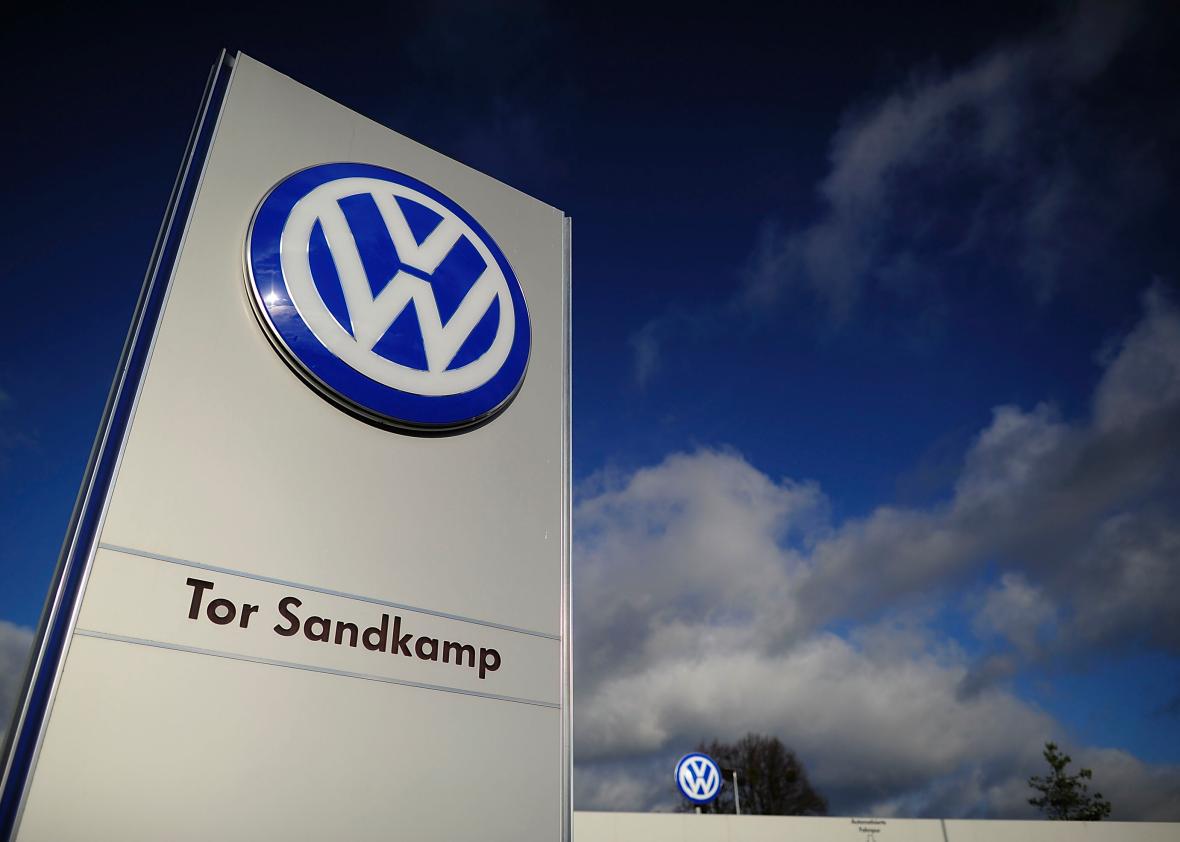The Associated Press is reporting that the German automaker Volkswagen will pay $10.2 billion in American settlement claims over its emissions cheating scandal. According to the AP’s anonymous source, 482,000 Volkswagen owners of cars with pollution controls designed to work only during emissions testing will receive $1,000 to $5,000 in payments depending on the age of their vehicles. Volkswagen will also pay penalties to the U.S. government.
The Volkswagen case has been placed under a gag order by a federal judge and the terms reported by the AP’s source could differ from those set to be officially reported by the court on Tuesday. But the AP’s source and other recent reporting suggest that Volkswagen could soon pay heavily for a scandal that has rocked both the company and the auto industry for months.
In April, Volkswagen reached a preliminary agreement with the Justice Department to buy back or fix nearly half a million cars with illegal emissions-cheating systems. The program has yet to be approved by the Environmental Protection Agency or California’s Air Resources Board, but, as Bloomberg reported last week, is likely to be included in the settlement agreement due to be announced, which, according to their own source, allocates $6.5 billion for car owners.
Volkswagen could face additional fines from regulators even after the settlement is announced, and is the subject of a $3.6 billion dollar lawsuit from 300 institutional investors in Germany as well as criminal probes. Volkswagen has committed $18.4 billion to covering the total global costs of the scandal.
Internally, the company is in turmoil. On Wednesday, Volkswagen shareholders slammed the appointment of Volkswagen AG Chairman Hans Dieter Pötsch as head of the board responsible for Volkswagen’s internal investigation of the scandal. Pötsch, who was the company’s chief financial officer when the scandal first broke, was named to the board by a court in September and had his appointment backed by the company’s largest shareholders. But critics at the company’s annual meeting suggested an inherent conflict of interest in Pötsch’s oversight of an investigation into potential wrongdoing by the company’s top executives, including himself.
Volkswagen’s crisis began in September after the EPA ordered the recall of hundreds of thousands of Volkswagen vehicles found to contain systems designed to trigger emissions reductions only during regulatory testing. On the road in normal conditions, some cars were found to emit nearly 40 times the amount of nitrogen oxide legally permitted in the United States. The company soon admitted such systems had been installed in 11 million diesel vehicles worldwide. The company also admitted that the systems violated American laws, but told the New York Times in January that it believed they were not “forbidden” in Europe. Nevertheless, the company will recall 8.5 million European vehicles in addition to the nearly half a million cars slated for recall in the United States.
